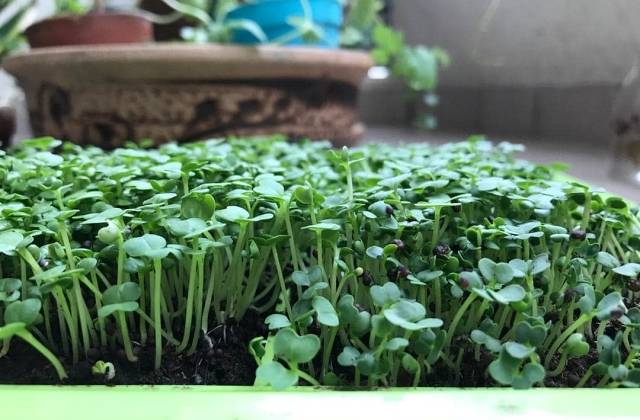Choosing Microgreens For IBS

Microgreens for IBS have become very popular as of late. This is a new dieting trend that is sweeping the nation. The reason it is so popular is because it is considered a more natural way to lose weight, lower your cholesterol and detoxify your body. It is also known to increase your energy levels and to improve your digestive functions.
While there are many benefits to eating microgreens for IBS, there are also some drawbacks to this new diet that you should be made aware of before starting to eat them regularly. The first drawback to eating microgreens for IBS is that they are very bitter. While microgreens for IBS do contain high amounts of chlorophyll, it is the other ingredients in the vegetable that give it the strong flavors. You will probably have to eat much more than one cup of these vegetables in order to get the full effect, which makes them more expensive than your traditional vegetables.
Another downside to microgreens for IBS is that they taste bland. They have a flavor that is much like lettuce and parsley. Many people also report that they have no taste at all in the beginning. This is especially true for those who are used to eating leafy green vegetables like spinach and kale. You may experience this “bite” after a while but it usually goes away on its own.
As a result of their bland taste, many people have reported that eating microgreens for IBS is a very unpleasant experience. One recommended way to make them more appealing is to mix them with other leafy vegetables. There are also several recipes available on the internet that have microgreens mixed with fruits like strawberries and applesauce.
The only true positive side effect of eating microgreens for IBS is that they do not cause indigestion or heartburn. This is because they contain only small amounts of fibre. Fiber is an important ingredient in keeping your tummy happy. It softens and moistens the food you are eating, preventing it from sticking to the walls of your tummy. For those with sensitive digestive systems, this can be extremely important and can help to reduce the symptoms of IBS.
As an added bonus, many people find that eating a few microgreens for IBS is very relaxing. Some say that they feel “high” or “spaced out”. The reason for this is because they contain a natural herb called spearmint, which has a stimulating effect. This gives people a sense of energy, which is very helpful for those with IBS.
People who have problems with constipation should be careful about giving microgreens for IBS a try. Microgreens are highly absorbent foods, so if you are already having problems with constipation you may want to switch to a different diet. There are also other foods that are highly absorbent but are good for IBS. For example, aloe vera, pear, honey and peppermint have a soothing effect on the stomach.
When choosing microgreens for IBS, be sure to avoid those with added ingredients such as high fructose corn syrup, wheat flour, yeast and gluten. You also want to stay away from highly processed foods, which are more likely to have ingredients that can stimulate your stomach’s release of acid. The best choices for treating your IBS symptoms are freshly grated vegetables, unprocessed yogurt, nuts and fresh fruits.
When you are ready to begin treating your IBS symptoms with microgreens for IBS, it’s important that you read the labels of any food product. Some foods contain ingredients that will make their effects worse than they would be if you did not know that they were potentially harmful. For example, caffeine is a stimulant and when consumed in excess can cause abdominal pain. However, if you consume it in small amounts, it will not have any noticeable effects on your IBS symptoms.
There are many different flavours of microgreens for IBS available. These range from traditional flavours, to exotic flavours that incorporate herbs and other organic ingredients. Each type of microgreen has its own properties that are unique to it. It’s important to experiment with different flavours until you find one that you like.
If you choose to make your own microgreens for IBS, it is important to use fresh ingredients. Caffeine can be harmful if it is stored for too long, so unless you are sure that you will consume it within a day or two, it is best to keep it out of the fridge. Alternatively, freeze any microgreens that you use, as this will also prevent them from being impacted by air.